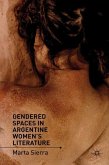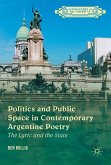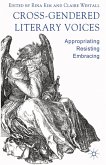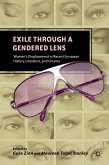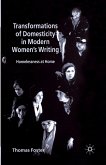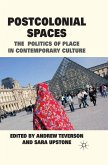Addressing the issue of how gendered spatial relations impact the production of literary works, this book discusses gender implications of spatial categories: the notions of home and away, placement and displacement, dwelling and travel, location and dislocation, and the 'quest for place' in women's writing from Argentina from 1920 to the present.
"An ambitious project covering significant shifts on the Argentine cultural landscape from 1920 to the present day, the study is well documented with exhaustive notes and bibliography ... a challenging read that engages, instructs, and goads the reader toward the formulation of new geo-poetics for Argentine modernity ... Highly recommended." - Choice
"In a welcome challenge to the growing body of work on literary spaces, Marta Sierra's book eschews conventional modes of seeking in the novel form an allegorical figuration of the nation-state. Sierra traces through autobiography, theatre, poetry and narrative pastiches an ongoing de-stabilization of hegemonic spatialities, a subversive place-making that injects unhomeliness into the domestic sphere, corporalizes the landscape and opens the territory to nomadic displacements. Written in a dense yet always engaging dialogue with cultural and political history, and attuned to the intricacies of the literary text, Sierra'swork invites us to remap the literary geographies of Argentine modernity." - Jens Andermann, professor of Latin American Studies, University of Zurich
"Marta Sierra offers readers an innovative cultural studies investigation into the gendered spatial poetics of Argentine women's writing. Her nuanced analysis not only navigates through the spatial imaginary of national territory but also explores the transnational dimensions of exilic, diasporic, and digital imaginaries. Challenging traditional conceptual mapping, Gendered Spaces in Argentine Women's Literature redirects our reading of Argentine women's writing in an eloquent and far-reaching geopoetics." -Marcy E. Schwartz, associate professor of Spanish, Rutgers University and author of Writing Paris: Urban Topographies of Desire in Contemporary Latin American Fiction
"Body and territory share in Latin America a contingent feminine condition, exploited and represented as strategic essentialisms. Marta Sierra's book lightens the surface of written spaces observed from a much needed material perspective. Her reading reenacts itineraries traversed by women in a journey that constructed and deconstructed identity positions." - Álvaro Fernández Bravo, director, New York University Buenos Aires
"In a welcome challenge to the growing body of work on literary spaces, Marta Sierra's book eschews conventional modes of seeking in the novel form an allegorical figuration of the nation-state. Sierra traces through autobiography, theatre, poetry and narrative pastiches an ongoing de-stabilization of hegemonic spatialities, a subversive place-making that injects unhomeliness into the domestic sphere, corporalizes the landscape and opens the territory to nomadic displacements. Written in a dense yet always engaging dialogue with cultural and political history, and attuned to the intricacies of the literary text, Sierra'swork invites us to remap the literary geographies of Argentine modernity." - Jens Andermann, professor of Latin American Studies, University of Zurich
"Marta Sierra offers readers an innovative cultural studies investigation into the gendered spatial poetics of Argentine women's writing. Her nuanced analysis not only navigates through the spatial imaginary of national territory but also explores the transnational dimensions of exilic, diasporic, and digital imaginaries. Challenging traditional conceptual mapping, Gendered Spaces in Argentine Women's Literature redirects our reading of Argentine women's writing in an eloquent and far-reaching geopoetics." -Marcy E. Schwartz, associate professor of Spanish, Rutgers University and author of Writing Paris: Urban Topographies of Desire in Contemporary Latin American Fiction
"Body and territory share in Latin America a contingent feminine condition, exploited and represented as strategic essentialisms. Marta Sierra's book lightens the surface of written spaces observed from a much needed material perspective. Her reading reenacts itineraries traversed by women in a journey that constructed and deconstructed identity positions." - Álvaro Fernández Bravo, director, New York University Buenos Aires


